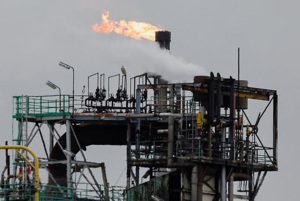Europe set for light autumn refinery maintenance as fuel markets tighten
(Reuters) - European oil refiners are set to have an autumn maintenance season less busy than usual, analysts and traders say, as they try to capture higher profit margins amid low fuel inventories and robust demand for gasoline and diesel.
A lower refinery maintenance schedule means Europe will be less reliant on fuel imports at a time when global prices are elevated. It also means that refiners that remain online will have to snap up crude at higher prices and hence might face lower profits.
Offline capacity in Europe in the fourth quarter is forecast to reach about 800,000 barrels per day (bpd), a rise of about 200,000 bpd from the previous quarter, but about 40% below levels the same time last year and in 2019, according to consultancy Wood Mackenzie.
For the whole year, Woodmac forecasts average shutdowns of about 1 million bpd, about 300,000 bpd below pre-pandemic 2019 levels.
A decision by Saudi Arabia and Russia, two of the world's biggest oil producers, to limit their supplies by a combined 1.3 million bpd until the end of the year has raised crude prices to their highest since November 2022.
bp will put its German Gelsenkirchen refinery in for a several week turnaround, shutting down the entire 120,000 bpd Horst section and parts of the 140,000 bpd Scholven section.
Sweden's Preem has began a maintenance shutdown at its 126,000 bpd Gothenburg plant which will last up to five weeks.
And in Portugal, refiner Galp said it would shut its 220,000 bpd Sines refinery for maintenance during the fourth quarter.
"In early 2023 we observed a much higher maintenance period through March and therefore would expect the autumn maintenance outlook to be lower – aligning with the typical maintenance trend that higher maintenance in spring typically indicates lower autumn maintenance," Woodmac analyst Emma Howsham said.
In recent months refiners have also experienced bouts of unplanned maintenance, likely as a repercussion of limited maintenance throughout COVID-19 lockdowns and during record high margins last year, she said.
"With global oil demand continuing to break record levels, a lack of spare crude processing capacity due to a near-decade of ESG-induced underinvestment, is resulting in higher refinery crude runs," bank MUFG analyst Ehsan Khoman said.
"This is stretching the global refining system, supporting margins and breeding fuel price volatility," he added.
Oil product volatility was also highlighted by Russell Hardy, chief executive of the world's largest independent oil trader Vitol, at an industry event last week.
"The volatility is coming from products because refining capacity is very, very tight. Lots of refineries closed during COVID and the West really doesn't have the product making capacity it needs, now that Russian exports are making their way to Asia," Hardy said.







Comments